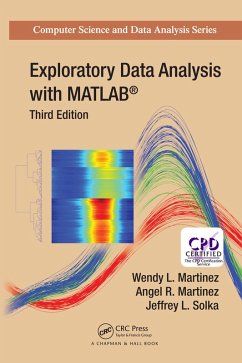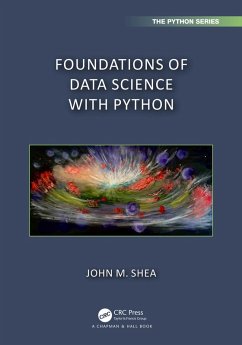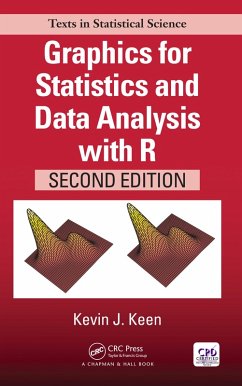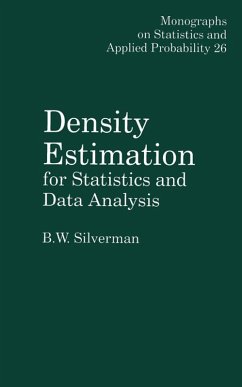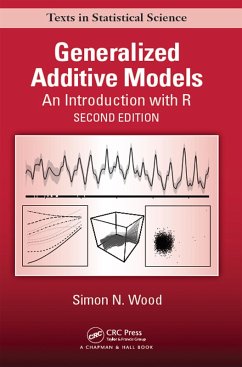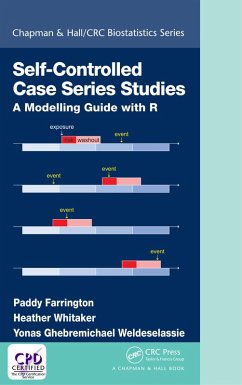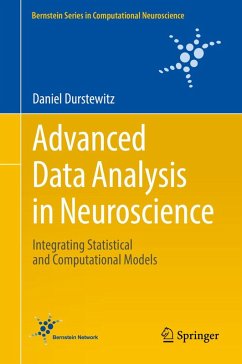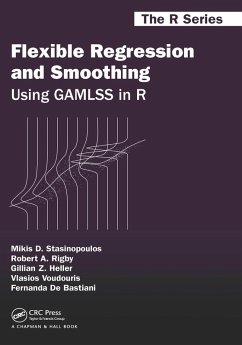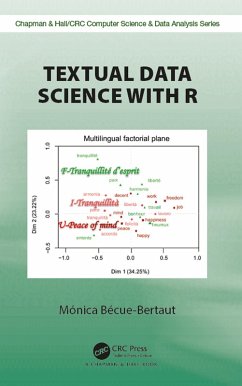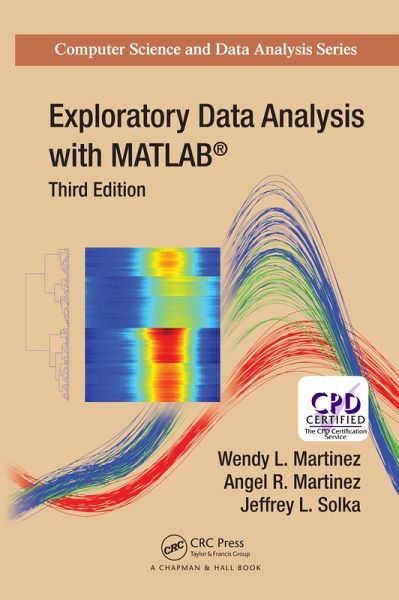
Exploratory Data Analysis with MATLAB (eBook, PDF)

PAYBACK Punkte
26 °P sammeln!
Praise for the Second Edition:"The authors present an intuitive and easy-to-read book. ... accompanied by many examples, proposed exercises, good references, and comprehensive appendices that initiate the reader unfamiliar with MATLAB."-Adolfo Alvarez Pinto, International Statistical Review"Practitioners of EDA who use MATLAB will want a copy of this book. ... The authors have done a great service by bringing together so many EDA routines, but their main accomplishment in this dynamic text is providing the understanding and tools to do EDA.-David A Huckaby, MAA ReviewsExploratory Data Analysis...
Praise for the Second Edition:
"The authors present an intuitive and easy-to-read book. ... accompanied by many examples, proposed exercises, good references, and comprehensive appendices that initiate the reader unfamiliar with MATLAB."-Adolfo Alvarez Pinto, International Statistical Review
"Practitioners of EDA who use MATLAB will want a copy of this book. ... The authors have done a great service by bringing together so many EDA routines, but their main accomplishment in this dynamic text is providing the understanding and tools to do EDA.
-David A Huckaby, MAA Reviews
Exploratory Data Analysis (EDA) is an important part of the data analysis process. The methods presented in this text are ones that should be in the toolkit of every data scientist. As computational sophistication has increased and data sets have grown in size and complexity, EDA has become an even more important process for visualizing and summarizing data before making assumptions to generate hypotheses and models.
Exploratory Data Analysis with MATLAB, Third Edition presents EDA methods from a computational perspective and uses numerous examples and applications to show how the methods are used in practice. The authors use MATLAB code, pseudo-code, and algorithm descriptions to illustrate the concepts. The MATLAB code for examples, data sets, and the EDA Toolbox are available for download on the book's website.
New to the Third Edition
"The authors present an intuitive and easy-to-read book. ... accompanied by many examples, proposed exercises, good references, and comprehensive appendices that initiate the reader unfamiliar with MATLAB."-Adolfo Alvarez Pinto, International Statistical Review
"Practitioners of EDA who use MATLAB will want a copy of this book. ... The authors have done a great service by bringing together so many EDA routines, but their main accomplishment in this dynamic text is providing the understanding and tools to do EDA.
-David A Huckaby, MAA Reviews
Exploratory Data Analysis (EDA) is an important part of the data analysis process. The methods presented in this text are ones that should be in the toolkit of every data scientist. As computational sophistication has increased and data sets have grown in size and complexity, EDA has become an even more important process for visualizing and summarizing data before making assumptions to generate hypotheses and models.
Exploratory Data Analysis with MATLAB, Third Edition presents EDA methods from a computational perspective and uses numerous examples and applications to show how the methods are used in practice. The authors use MATLAB code, pseudo-code, and algorithm descriptions to illustrate the concepts. The MATLAB code for examples, data sets, and the EDA Toolbox are available for download on the book's website.
New to the Third Edition
- Random projections and estimating local intrinsic dimensionality
- Deep learning autoencoders and stochastic neighbor embedding
- Minimum spanning tree and additional cluster validity indices
- Kernel density estimation
- Plots for visualizing data distributions, such as beanplots and violin plots
- A chapter on visualizing categorical data
Dieser Download kann aus rechtlichen Gründen nur mit Rechnungsadresse in A, B, BG, CY, CZ, D, DK, EW, E, FIN, F, GR, HR, H, IRL, I, LT, L, LR, M, NL, PL, P, R, S, SLO, SK ausgeliefert werden.




